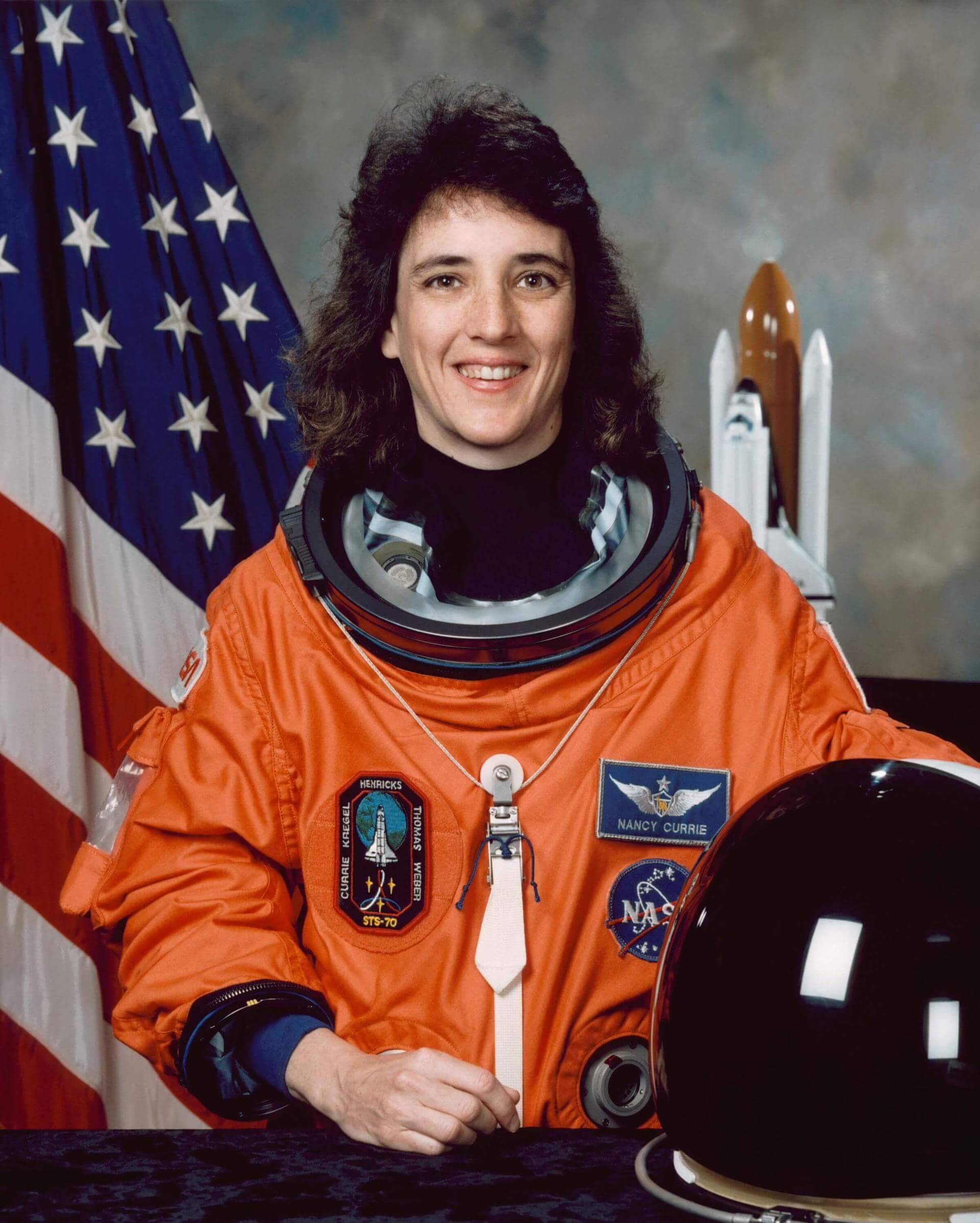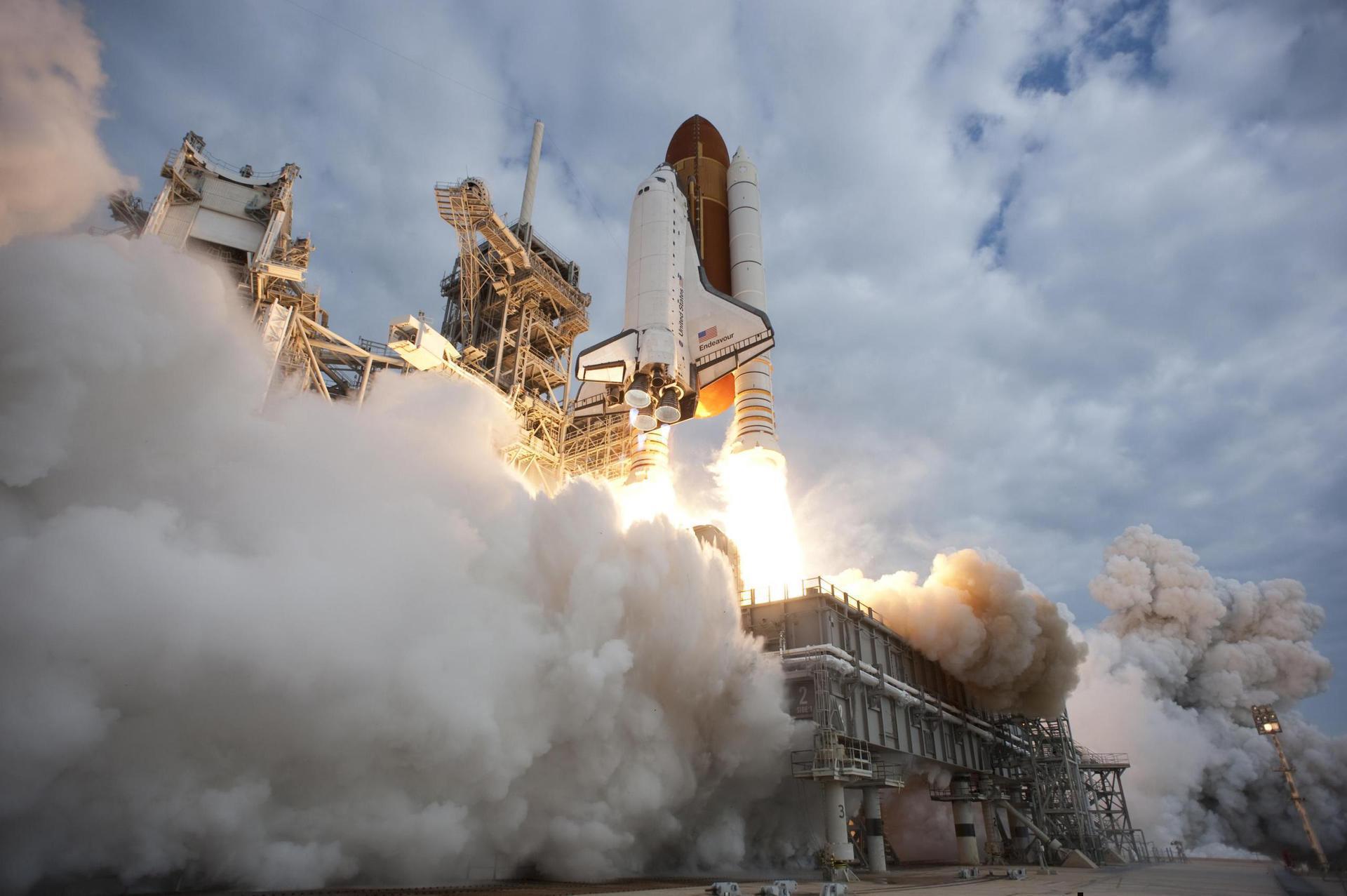Nancy J. Currie-Gregg
American - (NASA)
Retired
Date of Birth: Dec. 29, 1958
Age: 67
Nancy Jane Currie-Gregg is an engineer, United States Army officer and a NASA astronaut. Currie-Gregg has served in the United States Army for over 22 years and holds the rank of colonel. With NASA, she has participated in four space shuttle missions: STS-57, STS-70, STS-88, and STS109, accruing 1,000 hours in space. She currently holds an appointment as an adjunct associate professor in the Department of Industrial & Systems Engineering at Texas A&M University.
Space Shuttle Endeavour / OV-105 | STS-57
National Aeronautics and Space Administration | United States of AmericaKennedy Space Center, FL, USA
June 21, 1993, 1:07 p.m.
Space Shuttle Discovery / OV-103 | STS-70
National Aeronautics and Space Administration | United States of AmericaKennedy Space Center, FL, USA
July 13, 1995, 1:41 p.m.
Status: Success
Mission:
STS-70 was the 21st flight of the Space Shuttle Discovery, and the last of 7 shuttle missions to carry a Tracking and Data Relay Satellite (TDRS). This was the first shuttle mission controlled from the new mission control center room at the Johnson Space Center in Houston. STS-70 was also the first flight of the new Block 1 orbiter main engine, designed to improve both engine performance and safety.
Low Earth OrbitSpace Shuttle Endeavour / OV-105 | STS-88
National Aeronautics and Space Administration | United States of AmericaKennedy Space Center, FL, USA
Dec. 4, 1998, 8:35 a.m.
Space Shuttle Columbia / OV-102 | STS-109
National Aeronautics and Space Administration | United States of AmericaKennedy Space Center, FL, USA
March 1, 2002, 11:22 a.m.
Status: Success
Mission:
STS-109 (SM3B) was a Space Shuttle mission that launched from the Kennedy Space Center on 1 March 2002. It was the 108th mission of the Space Shuttle program, the 27th flight of the orbiter Columbia and the fourth servicing of the Hubble Space Telescope. It was also the last successful mission of the orbiter Columbia before the ill-fated STS-107 mission, which culminated in the Columbia disaster.
Low Earth OrbitThe National Aeronautics and Space Administration is an independent agency of the executive branch of the United States federal government responsible for the civilian space program, as well as aeronautics and aerospace research. NASA have many launch facilities but most are inactive. The most commonly used pad will be LC-39B at Kennedy Space Center in Florida.
Falcon 9
Starlink Group 17-26
Space Launch Complex 4E - Vandenberg SFB, CA, USAA batch of 25 satellites for the Starlink mega-constellation - SpaceX's project for space-based Internet communication system.
Falcon 9
Starlink Group 6-110
Space Launch Complex 40 - Cape Canaveral SFS, FL, USAA batch of 29 satellites for the Starlink mega-constellation - SpaceX's project for space-based Internet communication system.
Falcon 9
Starlink Group 6-104
Space Launch Complex 40 - Cape Canaveral SFS, FL, USAA batch of 28 satellites for the Starlink mega-constellation - SpaceX's project for space-based Internet communication system.
Falcon 9
Starlink Group 17-25
Space Launch Complex 4E - Vandenberg SFB, CA, USAA batch of 25 satellites for the Starlink mega-constellation - SpaceX's project for space-based Internet communication system.
Falcon 9
Starlink Group 10-36
Space Launch Complex 40 - Cape Canaveral SFS, FL, USAA batch of 29 satellites for the Starlink mega-constellation - SpaceX's project for space-based Internet communication system. First Starlink laun…



